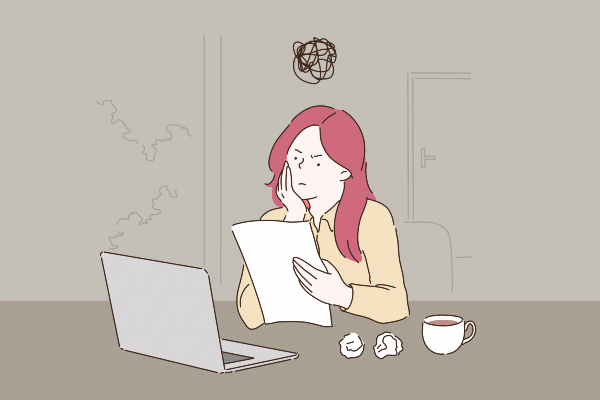Don't miss the latest stories
Oracle’s Study Uncovers Mental Health Struggles Faced During Work From Home
By Mikelle Leow, 08 Oct 2020
Subscribe to newsletter
Like us on Facebook

Image via Shutterstock
What’s going on behind that smile you put on during Zoom calls?
Working from home, once deemed as an enviable perk, isn’t as free and easy as it seems, especially when it’s something you’re forced to do all week. Hours get stretched, domestic and office routines become a blur, and creature comforts you’ve set up in the little sanctuary you call home are now distractions.
Professionals around the world are generally experiencing a drastic difference in their mental health, according to a new study by Oracle and Workplace Intelligence. Not only are COVID-19 circumstances hurting their sleep, but people have also reported a noticeable drop in productivity.
Findings from Oracle’s research of 12,000 people across 11 countries suggest that 2020 is “the most stressful year ever,” with 78-percent of the global workforce facing a dip in their mental health as a result of the pandemic.
85 percent also reported mental health issues at work have impacted their home life, leading to sleep deprivation (40 percent), poor physical health (35 percent), a drop in happiness at home (33 percent), obstacles in family relationships (30 percent), or isolation from peers (28 percent).
When it comes to productivity, 42 percent said they no longer feel as efficient at work, with 41 percent being affected by the delineation of work and home lives. 35 percent struggle to strike a work-life balance, and 25 percent admitted to being burnt out. A quarter of respondents reported being depressed.
While mental struggles seem personal, the fight to restore morale isn’t employees’ responsibility alone. 76-percent of workers believe companies should do more to maintain the mental wellbeing of the workforce.
Nevertheless, respondents agreed that there are some perks of working remotely, such as being able to spend more time with family members (51 percent) and getting more sleep (31 percent).
If you’re one of the many who grapple to see the light at the end of the tunnel, Forbes contributor and PhD sociologist Tracy Brower has a number of suggestions to make the best of this difficult period.
For one, look within to see if there are any interests or strengths you can use to “add unique value” during the crisis. For instance, employees who are used to having face-to-face meetings with clients have channeled this preference into creating podcasts. A newfound purpose can help you feel valued again.
Part of your struggle could also be due to the sense of being “out of the radar” at work. Brower suggested to stay in touch with coworkers “both formally and informally,” such as having regular one-on-one virtual meetings to report on the work you have completed. “Don’t underestimate the value of being explicit about the work you’re doing,” Brower said. “It won’t be automatic for others to see you, so you can help them see your value.”
It’s most imperative to set boundaries between work and home. When it’s time to close your laptop, remember to do just that and keep your device as far away as possible. One interesting way to mentally establish the end of a work day is by announcing you’re “home from work,” Brower recommended.
For more ideas on how to thrive during this uncertain time, check out Brower’s list on Forbes.
[via Forbes, cover image via Shutterstock]
Receive interesting stories like this one in your inbox
Also check out these recent news





